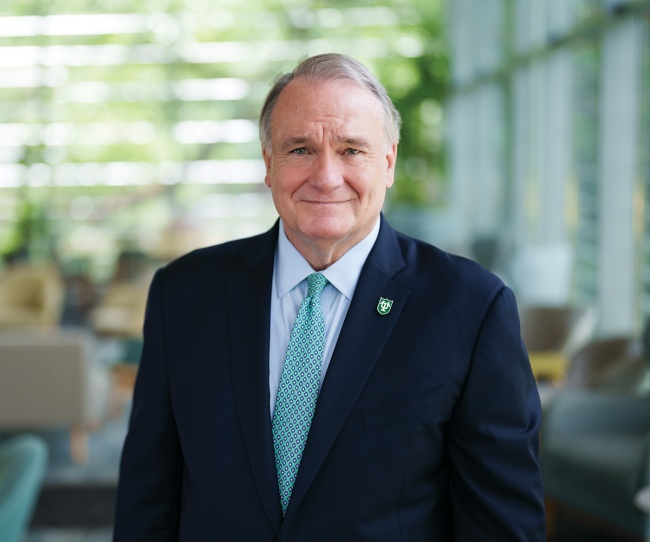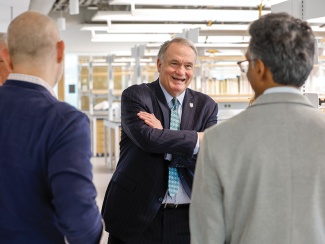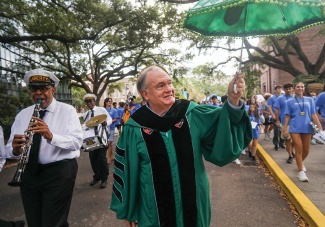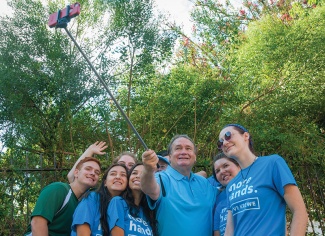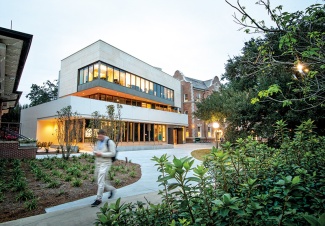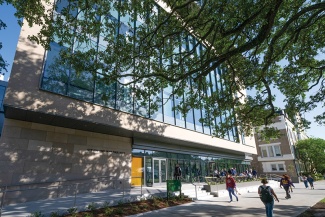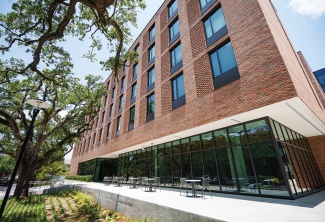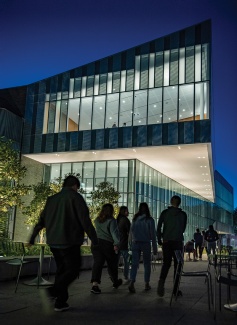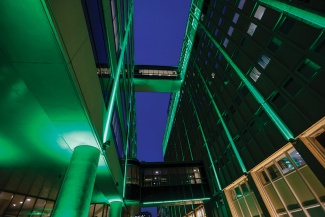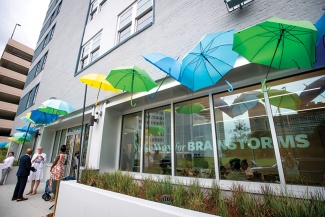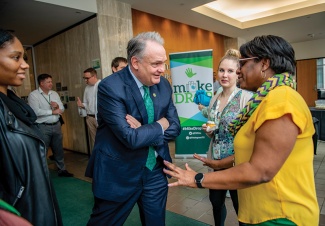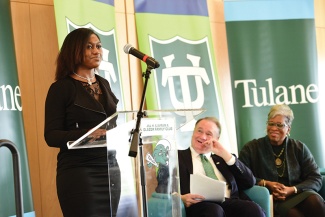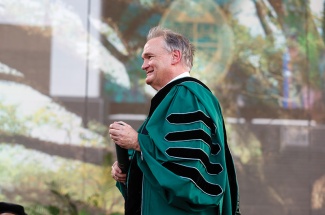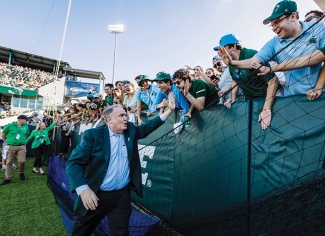(Photo by Jason Cohen)
Action has to be swift. When a patient experiences the common co-infections of HIV and tuberculosis (TB), doctors need to know test results quickly so they can determine a treatment plan. Treating the HIV infection first could increase the TB’s bacterial load. But waiting to treat the HIV could have devastating results. Decisions have to be informed, calibrated and made ASAP.
Enter Tulane. A team led by researcher Tony Hu recently developed a new rapid test that can detect both HIV and TB simultaneously and far faster than conventional methods. The new test could save time and lives.
Such a breakthrough is the kind of global impact President Michael A. Fitts envisioned for Tulane when he arrived at the university a decade ago. In fact, Hu himself came to Tulane as part of the endowed presidential chair program Fitts established to recruit internationally recognized scholars who could further complement and bolster Tulane’s already-existing ranks of world-class scholars.
“We appreciate his bold vision and trust in young faculty like me, and backing us all the way,” said Hu, the Weatherhead Presidential Chair in Biotechnology Innovation and director of the Center for Cellular and Molecular Diagnostics. “That is hard to find elsewhere.”


